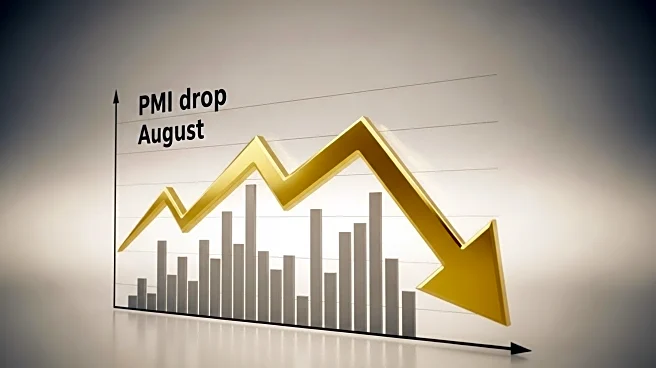What's Happening?
Bangladesh's economy may have expanded in August, but at a slower pace, as indicated by a drop in the Purchasing Managers' Index (PMI) to 58.3. This decline reflects weaker momentum across key sectors, with agriculture and construction contracting, while manufacturing and services recorded slower growth. The PMI, a forward-looking economic indicator, showed that despite 11 months of consecutive expansion, the pace has decelerated. The agriculture sector saw a contraction after 10 months of growth, and construction slipped back into contraction after a brief expansion in July. Manufacturing and services continued to grow, but at reduced rates, with new orders and exports rising but employment declining.
Why It's Important?
The PMI's decline is significant as it signals potential challenges for Bangladesh's economic trajectory. The slower growth in manufacturing and services, coupled with contractions in agriculture and construction, could impact employment and export earnings, which are vital for economic stability. The report highlights the effects of prolonged monsoon disruptions and rising costs, which may influence policy decisions and investor confidence. Understanding these trends is crucial for stakeholders to develop strategies that address economic vulnerabilities and sustain growth.
What's Next?
Looking ahead, future business expectations have weakened in agriculture, manufacturing, and construction, though the services sector remains optimistic. Addressing political instability and rising costs will be essential to maintain economic momentum. Stakeholders may focus on enhancing resilience in agriculture and construction, while leveraging strengths in services to drive recovery. Continuous monitoring of PMI trends will be vital for adjusting strategies and ensuring sustainable growth.









